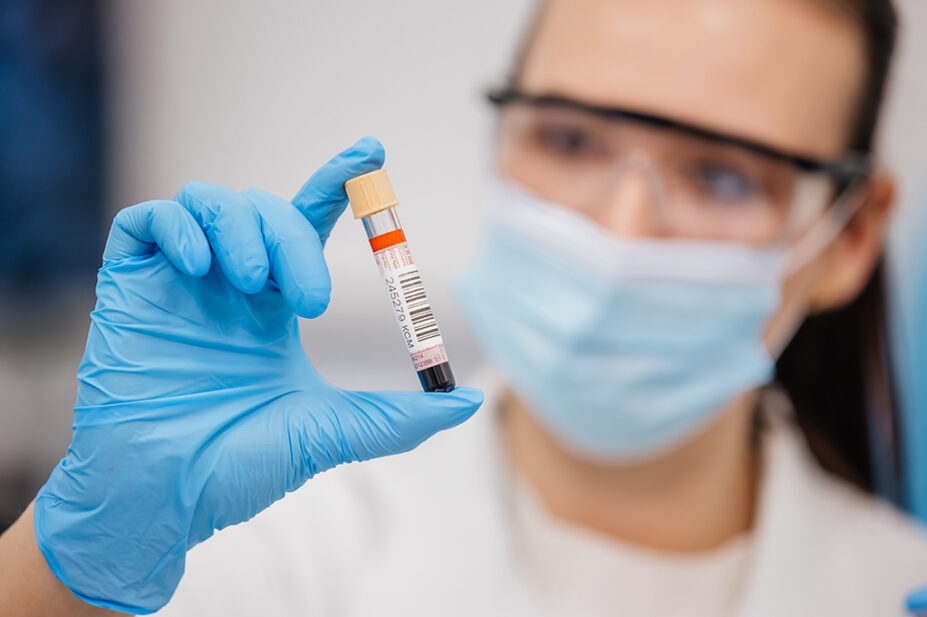
Shutterstock.com
The National Institute for Health and Care Excellence (NICE) has approved the first gene-editing CRISPR therapy Casgevy (exagamglogene autotemcel; Vertex Pharmaceuticals) for use on the NHS in England and Wales to treat older children and adults with a severe form of beta thalassaemia.
NHS England said it will be among the first healthcare systems in the world to offer the treatment, with an estimated 460 patients in England aged 12 years and older living with transfusion-dependent beta thalassaemia potentially eligible for the therapy.
The treatment, a course of which NICE said has a list price of more than £1.6m, will become available at seven highly specialist NHS centres across the country over the coming weeks and be manufactured in Edinburgh. A discount has been negotiated with the manufacturer Vertex Pharmaceuticals, but no details have been published for commercial reasons.
The approval, announced on 8 August 2024, was made despite previous draft guidance rejecting the same treatment for sickle cell disease (SCD) in March 2024 on cost grounds.
Final guidance on the use of Casgevy to treat SCD was expected to be published in July 2024; however, the appraisal was paused and remains ongoing owing to NICE requiring additional time to reconsider and analyse new information provided by manufacturer Vertex Pharmaceuticals about complications associated with SCD, with a committee meeting date yet to be confirmed.
Following negotiations between the NHS and Vertex Pharmaceuticals, NICE said Casgevy will enter the Innovative Medicines Fund, meaning that patients with transfusion-dependent thalassaemia will have fast-tracked access while further evidence is gathered on its benefits over the next five years.
CRISPR — which stands for ‘clustered regularly interspaced short palindromic repeats’ — involves an enzyme called the CRISPR-associated protein 9 or ‘Cas9’, which act as a pair of ‘molecular scissors’ that can snip each of the two strands of a patient’s DNA, enabling changes to be made.
Blood stem cells are removed from a patient’s body, edited in a laboratory using CRISPR technology so that the body produces functioning haemoglobin, and then returned to the patient via an infusion. Patients also need to receive chemotherapy before treatment, followed by a four-to-six-week hospital stay.
Most patients who could be eligible for this treatment currently need transfusions every three to five weeks to survive; however, international clinical trial data show that 93% of patients with beta thalassaemia did not need a blood transfusion for at least one year after having the treatment, and it is hoped that the therapy could be a lifetime cure.
Bola Owolabi, director of the National Healthcare Inequalities Improvement Programme at NHS England, said it was “an incredibly exciting step forward” that “could drastically change the lives” of those living with the condition.
“We hope this groundbreaking treatment enables people with beta thalassaemia to live longer, more independent and higher quality lives — without the need for regular treatments and hospital appointments and without pain, fatigue and other side effects that can come with this severe and life-limiting condition,” she added.
Romaine Maharaj, executive director at the UK Thalassaemia Society, said the approval marked “the brink of a revolutionary breakthrough”, offering patients “a life-changing opportunity for a future free from the challenges of their condition”.
“It is a beacon of hope that underscores the power of innovation in medicine, paving the way for curative options that can truly enhance the quality of life for everyone affected,” she added.
Beta thalassaemia is an inherited blood disorder that affects the red blood cells, mainly among people with Mediterranean, south Asian, south-east Asian and Middle Eastern ancestry.
There are around 2,300 people with thalassaemia in the UK, with an estimated 800 people with the severe form of the condition that rely on regular blood transfusions.
Beta thalassaemia requires lifelong treatment and can greatly impact on quality of life, with people suffering from anaemia, chronic pain and many also reporting psychological impacts, such as anxiety and depression.
Previously, the only curative treatment has been stem cell transplant, but this is only available to a small number of people, as it can be difficult to find matched donors and rejection is a possibility.


